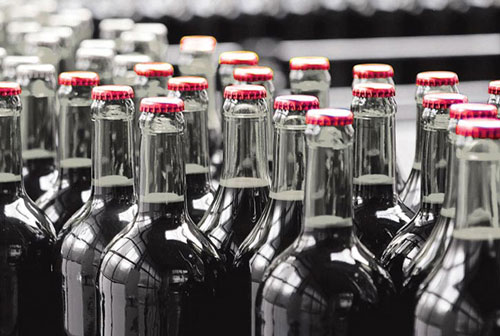Overcoming lubrication challenges in the food & beverage industry

Sourcing appropriate machine components in the food and beverage industry is often difficult. From extreme temperatures to high pressured washdowns, the conditions inflicted on machinery in this industry are tough.
With around 36% of premature bearing failures attributed to poor lubrication practices, the importance of proper lubrication is clear. But the harsh conditions of the food and beverage industry mean that maintaining adequate levels of uncontaminated lubrication can be difficult.
Luckily, Petro-Canada has spent over 30 years developing a range of specialist lubricants which can stand up to the unforgiving conditions of the food and beverage industry.
Incidental contact with food products
Every component which is used within food and beverage machinery has a chance of coming into contact with food produce, even if only accidentally. For this reason, all lubricants should be food grade. This means that should a small amount leak into food produce, it will not have any adverse effects if consumed. This helps to keep costly product recalls to a minimum.
Petro-Canada manufactures a vast range of food grade lubricants to suit every application requirement, from applications subject to heavy loads to those which are operating in extreme temperature environments.
Extreme temperatures
From ovens to freezers, the food and beverage industry operates in the most extreme of temperatures. These temperatures are essential for the effective processing of food products, but they can cause serious problems if the correct lubrication products are not selected.
High temperatures cause lubricant to degrade faster as well as lowering its viscosity, making it more susceptible to leakage. This means that relubrication intervals are often shorter in applications which are subjected to extreme heat.
Low temperatures can cause just as many problems, with the viscosity of lubricant increasing as the temperature drops. This causes the lubricant to become thicker, and therefore limiting its effectiveness.
Petro-Canada’s range of Purity FG Synthetic greases are ideal for use in food and beverage applications which are subject to extreme temperatures during operation.
Contaminants
Abrasive contaminants such as flour and soil are common in the food and beverage industry. If these contaminants ingress into a component, they can reduce the effectiveness of the lubricant, limiting its capability.
Purity FG2 Clear greases, which are manufactured by Petro-Canada, help to provide greater visibility of contaminants within components, highlighting where contamination has occurred. It also provides improved component wear protection, promoting service life.
Cleaning regimes
Cleanliness in the food and beverage industry is preserved thanks to frequent high pressured washdowns. This helps to prevent bacteria from colonising on components, keeping equipment sanitary and complying with the strict regulations of the industry.
However, the high pressures that components are subjected to during these washdowns have the ability to compromise seals, allowing water and other chemicals used for cleaning such as detergents and sulphurs to enter the bearing and wash away lubricant.
Petro-Canada’s Purity FG2 grease with MICROL™ MAX delivers superior protection against water washout, as well as providing resistance against rust and corrosion. This grease also contains an antimicrobial preservative to protect the lubricant from microorganisms that can cause degradation and odours.
Conclusion
When deciding on a lubrication product for your food and beverage application, it is important to also take into consideration the operating speed and load requirements of the application, as well as the expected relubrication intervals.
The food and beverage industry is always going to create challenges for lubrication. Thankfully, there are an increasing number of quality food-compatible lubricants, each with their own strengths in dealing with the harsh conditions that are expected from the industry.
For help choosing the right lubricant for your food and beverage application, contact your knowledgeable local sales team today.
